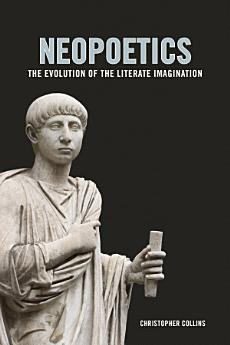Neopoetics: The Evolution of the Literate Imagination
Nov 2016 · Columbia University Press
Ebook
352
Pages
family_home
Eligible
info
reportRatings and reviews aren’t verified Learn More
About this ebook
The quest to understand the evolution of the literary mind has become a fertile field of inquiry and speculation for scholars across literary studies and cognitive science. In Paleopoetics, Christopher Collins's acclaimed earlier title, he described how language emerged both as a communicative tool and as a means of fashioning other communicative tools—stories, songs, and rituals. In Neopoetics, Collins turns his attention to the cognitive evolution of the writing-ready brain. Further integrating neuroscience into the popular field of cognitive poetics, he adds empirical depth to our study of literary texts and verbal imagination and offers a whole new way to look at reading, writing, and creative expression. Collins begins Neopoetics with the early use of visual signs, first as reminders of narrative episodes and then as conventional symbols representing actual speech sounds. Next he examines the implications of written texts for the play of the auditory and visual imagination. To exemplify this long transition from oral to literate artistry, Collins examines a wide array of classical texts—from Homer and Hesiod to Plato and Aristotle and from the lyric innovations of Augustan Rome to the inner dialogues of St. Augustine. In this work of "big history," Collins demonstrates how biological and cultural evolution collaborated to shape both literature and the brain we use to read it.
About the author
Christopher Collins is professor emeritus of English at New York University. His many books include Paleopoetics: The Evolution of the Preliterate Imagination (Columbia, 2013); Authority Figures: Metaphors of Mastery from the Iliad to the Apocalypse (1996); The Poetics of the Mind's Eye: Literature and the Psychology of Imagination (1991); and Reading the Written Image: Verbal Play, Interpretation, and the Roots of Iconophobia (1991).
Rate this ebook
Tell us what you think.
Reading information
Smartphones and tablets
Install the Google Play Books app for Android and iPad/iPhone. It syncs automatically with your account and allows you to read online or offline wherever you are.
Laptops and computers
You can listen to audiobooks purchased on Google Play using your computer's web browser.
eReaders and other devices
To read on e-ink devices like Kobo eReaders, you'll need to download a file and transfer it to your device. Follow the detailed Help Center instructions to transfer the files to supported eReaders.




